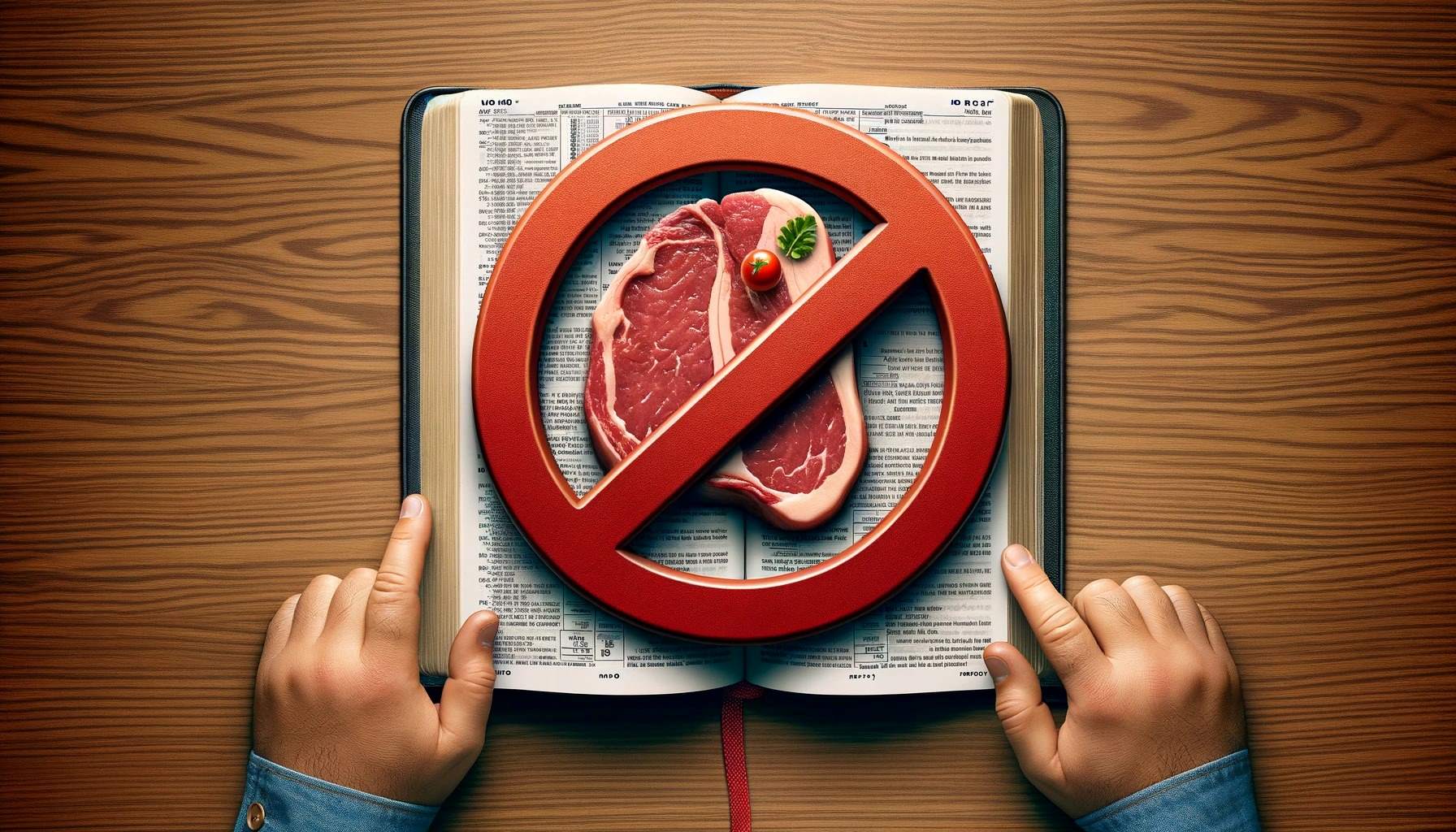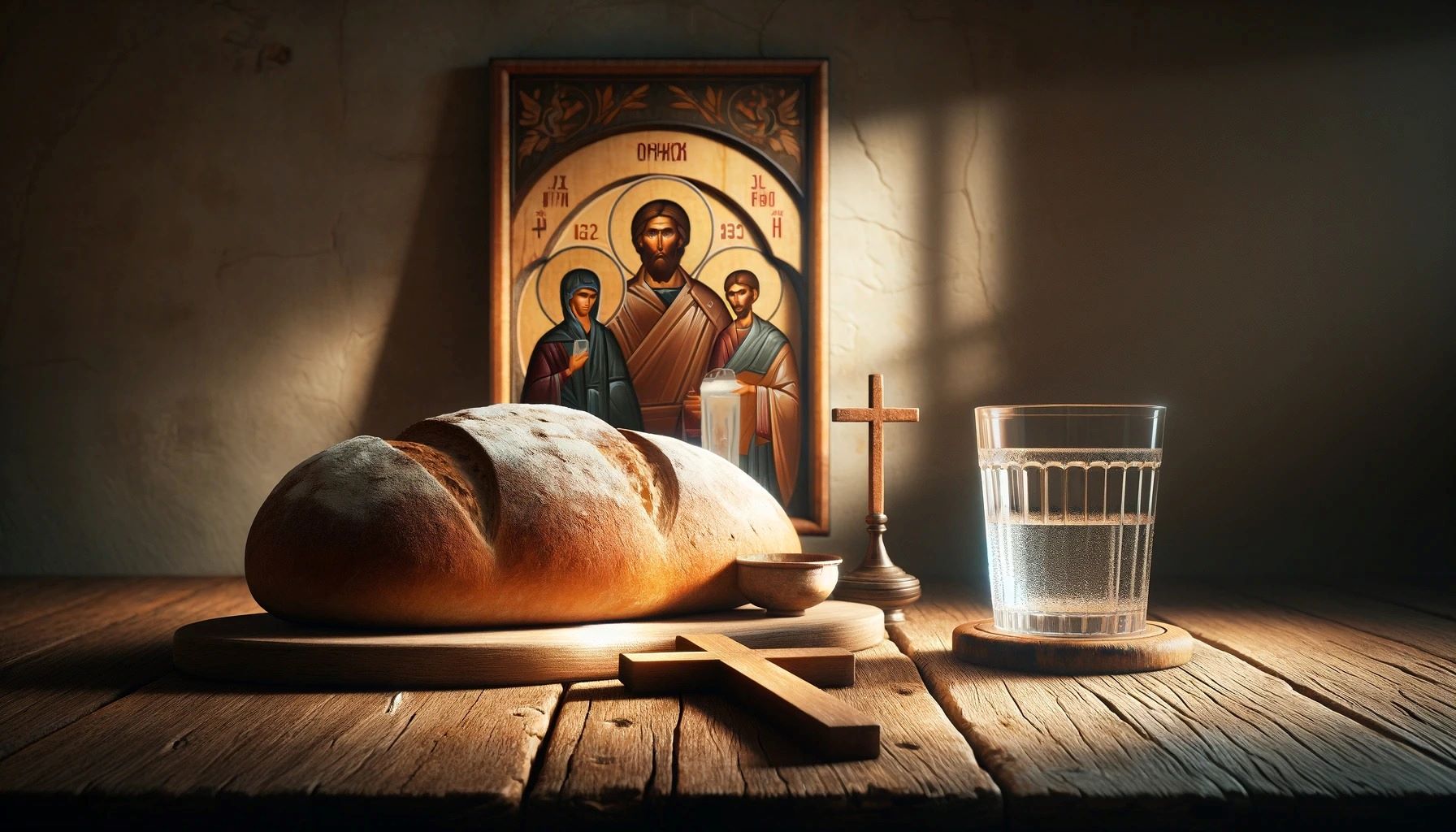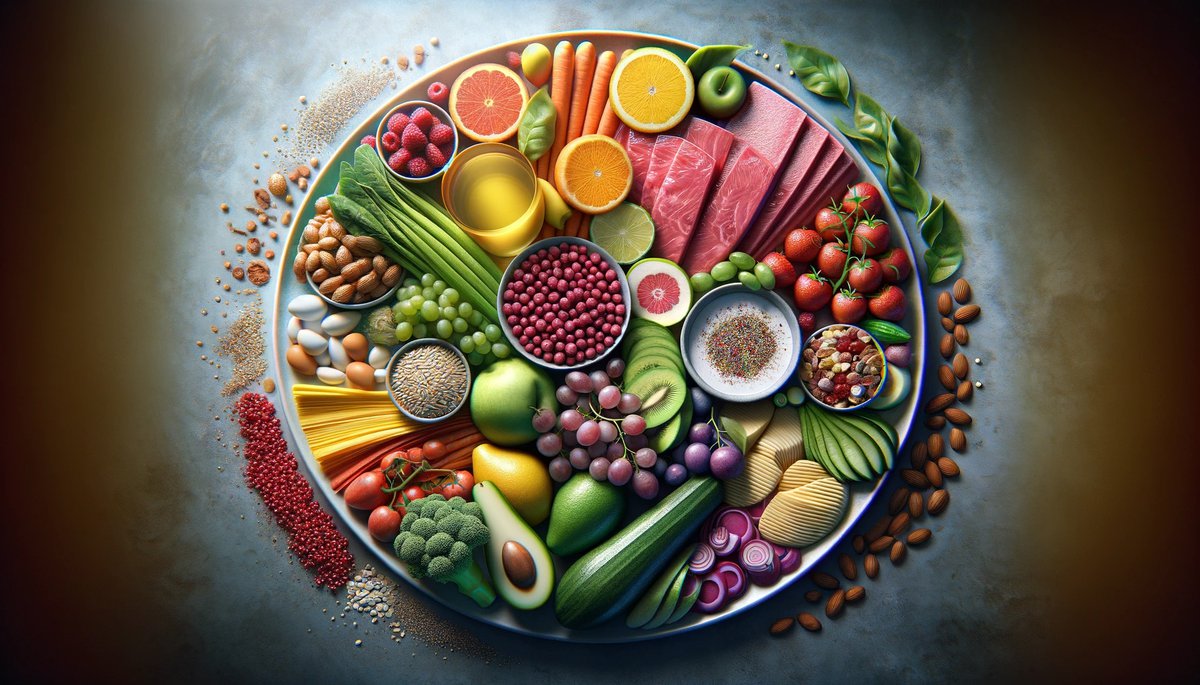Home>Special Themes>When Can You Not Eat Meat During Lent


Special Themes
When Can You Not Eat Meat During Lent
Published: February 27, 2024
Jason DeRose, Managing Editor at Christian.net, uses his expertise in religion and journalism to deepen understanding of faith's societal impacts. His editorial leadership, coupled with a strong academic background, enriches the platform’s diverse content, earning him recognition in both journalism and religious circles.
Discover the rules for abstaining from meat during Lent and learn when it's not permitted. Explore special themes and traditions related to Lenten dietary restrictions.
(Many of the links in this article redirect to a specific reviewed product. Your purchase of these products through affiliate links helps to generate commission for Christian.net, at no extra cost. Learn more)
Table of Contents
The History of Lent and Meat Consumption
Lent is a significant period in the Christian calendar, marking the 40 days leading up to Easter. It is a time of reflection, repentance, and spiritual growth. The tradition of abstaining from meat during Lent has deep historical roots within the Christian faith. The practice of fasting during Lent dates back to the early days of Christianity, with references to the observance of Lenten fasting found as early as the 2nd century. The restriction on meat consumption during Lent is linked to the biblical account of Jesus's 40-day fast in the wilderness, as well as the practice of self-discipline and sacrifice as a means of drawing closer to God. Over time, the custom of abstaining from meat during Lent became a widely recognized tradition in many Christian denominations, symbolizing a period of spiritual purification and preparation for the celebration of Easter.
The tradition of abstaining from meat during Lent has been a cornerstone of the Lenten observance for centuries, with its roots deeply embedded in the historical and spiritual fabric of the Christian faith. Understanding the historical significance of this practice provides valuable insight into the spiritual and symbolic meanings associated with Lenten meat restrictions.
The Traditional Rules for Abstaining from Meat During Lent
-
The General Rule: Traditionally, the practice of abstaining from meat during Lent applies to Ash Wednesday and all Fridays during Lent. This rule is observed by many Christian denominations, including Catholics, Eastern Orthodox Christians, and some Protestant traditions. The abstinence from meat is seen as a form of penance and self-discipline, aligning with the themes of sacrifice and spiritual reflection during the Lenten season.
-
Types of Meat: The traditional definition of "meat" in the context of Lenten abstinence typically includes the flesh of warm-blooded animals, such as beef, pork, chicken, and lamb. However, fish and other seafood are generally exempt from this restriction, allowing for alternative sources of protein during the period of meat abstinence.
-
Age Requirements: In many Christian traditions, the rules for abstaining from meat during Lent apply to individuals over the age of 14. Additionally, the rule of fasting on Ash Wednesday and Good Friday, which involves consuming only one full meal and two smaller meals that do not equal a full meal, typically applies to individuals between the ages of 18 and 59.
-
Personal Devotion: While the traditional rules provide a framework for Lenten observance, individuals are encouraged to approach the practice of meat abstinence with a spirit of personal devotion and intentionality. The emphasis is placed on the spiritual significance of the sacrifice rather than a rigid adherence to rules, allowing for individual variations based on personal circumstances and health considerations.
-
Community and Fellowship: Observing the traditional rules for abstaining from meat during Lent also fosters a sense of community and fellowship among believers. The shared commitment to this practice creates a sense of unity and solidarity within the faith community, as individuals come together to honor the spiritual significance of the Lenten season.
-
Symbolism and Spiritual Discipline: Beyond the practical guidelines, the traditional rules for abstaining from meat during Lent carry deep symbolic and spiritual significance. The act of forgoing meat serves as a tangible expression of self-denial and a reminder of the ultimate sacrifice of Jesus Christ, reinforcing the central themes of repentance, redemption, and spiritual renewal that define the Lenten journey.
By adhering to the traditional rules for abstaining from meat during Lent, individuals participate in a time-honored practice that connects them to the historical and spiritual dimensions of the Christian faith, fostering a deeper understanding of the significance of Lent as a period of spiritual growth and preparation for the celebration of Easter.
Exceptions to the Rule: When You Can Eat Meat During Lent
-
Solemnities and Feasts: While the Lenten season is characterized by the practice of abstaining from meat, there are exceptions to this rule that allow for the consumption of meat on certain days. Solemnities and feasts that fall during the Lenten period, such as the Feast of the Annunciation (March 25) and the Solemnity of St. Joseph (March 19), may permit the consumption of meat even on Fridays. These occasions are recognized as significant celebrations within the liturgical calendar, offering a reprieve from the usual Lenten abstinence to mark the joyous and festive nature of these observances.
-
Dispensations and Local Customs: In some cases, individuals may be granted dispensations from the requirement to abstain from meat during Lent due to specific circumstances. This could include individuals with health conditions that necessitate a non-restrictive diet or those facing unique situations that warrant a deviation from the traditional Lenten practices. Additionally, certain regions or cultural traditions within the Christian faith may have established local customs regarding meat consumption during Lent, providing variations in the observance of Lenten dietary restrictions based on specific cultural or regional practices.
-
Personal or Family Celebrations: The Lenten season encompasses a period of spiritual reflection and self-discipline, yet there are instances where personal or family celebrations may warrant the inclusion of meat in the diet. For example, the celebration of a significant family event, such as a wedding or anniversary, may call for the inclusion of meat as part of the festive meal. While these exceptions are approached with discernment and a spirit of moderation, they acknowledge the importance of communal and familial gatherings within the context of the Lenten journey.
-
Pastoral Guidance and Discernment: Individuals seeking clarity on when it is permissible to eat meat during Lent are encouraged to seek pastoral guidance from religious authorities within their respective Christian traditions. Pastors, priests, or spiritual advisors can provide insight and discernment regarding specific situations that may warrant exceptions to the traditional rules of meat abstinence during Lent, offering pastoral care and support to individuals navigating the complexities of observing Lenten practices within the context of their unique circumstances.
-
Acts of Charity and Hospitality: The spirit of Lent extends beyond personal observance to encompass acts of charity and hospitality. In certain instances, individuals may choose to partake in meals that include meat as a means of extending hospitality to others or participating in charitable endeavors that involve providing nourishment to those in need. These acts of compassion and generosity align with the broader themes of Lent, emphasizing the importance of selflessness and care for others within the Christian faith.
-
Flexibility and Spiritual Intent: While exceptions to the rule exist, the overarching principle of Lenten observance emphasizes the spiritual intent behind the practice of meat abstinence. Individuals are encouraged to approach these exceptions with a spirit of discernment, recognizing the significance of the Lenten journey while also acknowledging the need for flexibility in certain circumstances. The focus remains on the spiritual discipline and self-denial inherent in the Lenten season, with exceptions serving as nuanced considerations within the broader framework of Lenten observance.
By understanding the exceptions to the traditional rules of meat abstinence during Lent, individuals gain insight into the nuanced aspects of Lenten observance, fostering a deeper appreciation for the spiritual and practical dimensions of this significant period within the Christian calendar.
Understanding the Spiritual and Symbolic Reasons for Avoiding Meat During Lent
-
Symbolism of Sacrifice: The act of avoiding meat during Lent holds profound spiritual symbolism within the Christian tradition. By abstaining from meat, individuals symbolically align themselves with the sacrificial journey of Jesus Christ, who underwent fasting and self-denial during his 40-day sojourn in the wilderness. This practice serves as a tangible expression of solidarity with Christ's sacrifice, emphasizing the central themes of repentance, redemption, and spiritual renewal that define the Lenten season.
-
Spiritual Discipline and Self-Denial: The choice to avoid meat during Lent embodies the principles of spiritual discipline and self-denial, encouraging believers to exercise restraint and moderation in their dietary habits. This intentional act of self-discipline fosters a heightened awareness of one's spiritual priorities, redirecting the focus from material indulgence to the pursuit of spiritual growth and inner transformation.
-
Connection to Biblical Fasting Traditions: The tradition of abstaining from meat during Lent is deeply rooted in the biblical precedent of fasting as a means of drawing closer to God. Throughout the scriptures, fasting is portrayed as a spiritual discipline that cultivates a deeper reliance on God and a heightened sensitivity to His presence. By refraining from meat, individuals participate in a time-honored practice that echoes the biblical traditions of fasting and spiritual devotion.
-
Emphasis on Compassion and Mercy: The practice of avoiding meat during Lent also underscores the Christian values of compassion and mercy. By choosing alternative sources of sustenance, such as fish and plant-based foods, individuals demonstrate a conscientious regard for the welfare of animals and the responsible stewardship of God's creation. This intentional dietary choice reflects a commitment to ethical considerations and the promotion of compassionate living in alignment with Christian teachings.
-
Renewal and Purification of Body and Spirit: Lenten meat restrictions serve as a means of purifying both the body and the spirit, inviting believers to engage in a holistic process of renewal. By embracing dietary limitations, individuals embark on a journey of spiritual detoxification, cleansing the body from excessive consumption while simultaneously purifying the spirit through acts of self-discipline and devotion.
-
Preparation for the Celebration of Easter: The period of abstaining from meat during Lent is intricately linked to the preparation for the celebration of Easter. By engaging in this practice, individuals prepare themselves spiritually and physically for the joyous culmination of the Lenten journey, creating a sense of anticipation and readiness for the commemoration of Christ's resurrection.
-
Cultivation of Gratitude and Contentment: The intentional choice to forgo meat during Lent fosters a spirit of gratitude and contentment, prompting individuals to appreciate the simple blessings of sustenance and nourishment. This act of voluntary simplicity encourages a shift towards a mindset of gratitude, acknowledging the abundance of God's provision and cultivating a spirit of contentedness amidst the temporary sacrifices made during the Lenten season.
By delving into the spiritual and symbolic reasons for avoiding meat during Lent, individuals gain a deeper understanding of the profound spiritual significance embedded within this ancient tradition, enriching their Lenten observance with a heightened awareness of its spiritual and symbolic dimensions.
Practical Tips for Observing Lenten Meat Restrictions
-
Explore Meatless Recipes: Embrace the culinary diversity of meatless dishes by exploring a wide array of vegetarian and seafood-based recipes. Incorporate seasonal vegetables, legumes, and seafood into your meals to create flavorful and satisfying alternatives to meat-based dishes.
-
Plan Balanced Meals: Ensure that your meatless meals are nutritionally balanced by including a variety of protein sources, such as beans, lentils, tofu, and nuts. Pair these with whole grains, fruits, and vegetables to create wholesome and nourishing dishes that support your dietary needs during Lent.
-
Discover Cultural Traditions: Explore the rich cultural traditions of meatless cuisines from around the world. Delve into the culinary heritage of different cultures to discover new and exciting ways to prepare meatless meals, drawing inspiration from diverse culinary practices to enrich your Lenten dining experience.
-
Engage in Meal Sharing: Foster a sense of community and fellowship by engaging in meal sharing with friends and family members who are also observing Lenten meat restrictions. Organize potluck gatherings or communal meals where participants can share their favorite meatless dishes, creating a spirit of camaraderie and mutual support during the Lenten season.
-
Seek Nutritional Guidance: Consult with nutritionists or dietitians to ensure that your meatless dietary choices align with your nutritional requirements. Receive personalized guidance on maintaining a balanced diet while observing Lenten meat restrictions, addressing any concerns related to dietary diversity, essential nutrients, and overall nutritional well-being.
-
Embrace Seasonal Ingredients: Embrace the seasonal abundance of fruits, vegetables, and seafood to infuse your meatless meals with freshness and variety. Incorporate seasonal produce into your cooking, taking advantage of the unique flavors and nutritional benefits offered by seasonal ingredients to enhance your Lenten dining experience.
-
Practice Mindful Eating: Cultivate a practice of mindful eating during Lent, savoring each meatless meal with gratitude and intentionality. Engage all your senses while enjoying your food, appreciating the flavors, textures, and nourishment provided by your meatless culinary creations as part of your Lenten observance.
-
Explore Plant-Based Proteins: Experiment with a diverse range of plant-based protein sources, such as quinoa, chia seeds, and edamame, to expand your repertoire of meatless meal options. Incorporate these nutrient-rich alternatives into your diet to enhance the nutritional value of your meatless meals while exploring innovative culinary possibilities.
-
Support Local Farmers and Fishers: Source your ingredients from local farmers' markets and sustainable fisheries to align your meatless dietary choices with principles of ethical and sustainable food consumption. By supporting local producers, you contribute to the promotion of environmentally conscious and community-centered food practices during Lent.
-
Reflect on Food Choices: Take time to reflect on the significance of your food choices during Lent, considering the spiritual and ethical dimensions of your dietary practices. Use this period of meat abstinence as an opportunity for introspection and contemplation, deepening your awareness of the interconnectedness between food, faith, and personal values.
By incorporating these practical tips into your observance of Lenten meat restrictions, you can enrich your culinary experiences, promote nutritional well-being, and cultivate a deeper sense of mindfulness and intentionality in your dietary practices during this sacred season.















